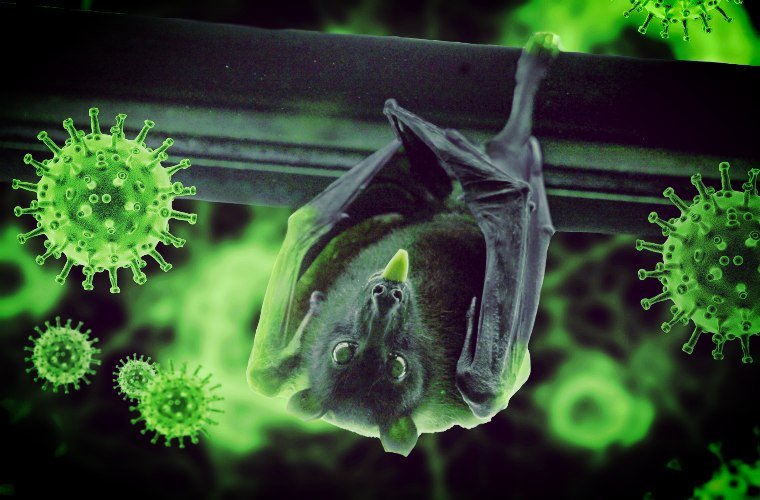Could new treatments for Covid-19 come from the most likely carrier of the disease itself? A new review explores the idea that researchers could turn to bats to better understand existing therapies for Covid-19, and develop new treatments.
The review, published in Science Immunology, was led by Professor Marcel Nold and Associate Professor Claudia Nold, from Monash University’s Department of Paediatrics and Hudson Institute of Medical Research, and written in collaboration with researchers in Australia and China.
While bats can contract the virus, they show minimal disease, unlike humans. “Preventing progression to severe disease, or effectively treating it – in other words emulating bats – would markedly relieve suffering and save lives,” the authors write.


Background: Our ‘frenemy,’ the bat…
According to the review, the common ancestor to the current Covid virus likely appeared in bats between 40 to 70 years ago. The culprit bat species for the 2019 outbreak, however, remains “elusive.”
Bats can infect one another with the virus, but they show no clinical repercussions of infection nor issues in the lungs that affect humans. How they resist Covid and how that mechanism can be used on humans are the million-dollar questions.
In response to the first half of the question, Associate Professor, and resident bat researcher, Aaron T. Irving said in an email to The Debrief, “We don’t know the complete story yet.”
“It seems to be a combination of factors involved in suppressing systemic inflammation and a heightened primary response to viral infection. It’s possibly an adaptation to flight as many of these factors from the metabolic stress of flight mimic pathogens—so their bodies have adapted to tolerate this,” he continued.
As the only flying mammal, bats generally use high amounts of energy, and their immune system has adapted to accommodate this. Bats have immune systems that are used to a higher baseline stress level and more tolerant of additional stressors like an infection with SARS-CoV-2.
According to the senior authors of the review—Dr. Michael Christie, Associate Professor Claudia A. Nold, and Professor Marcel Nold—this “rapid and finely-tuned response is usually successful at preventing the virus from causing tissue damage, so that the bat does not get sick.”
Bat immunology aside, the fact that bats were the reservoir host for the virus already enabled them to have higher tolerance of the virus. But while it’s common for the reservoir host to adapt to the virus they carry, the fact that bats can tolerate many different viruses is key to the search for new treatments.


Analysis: Can bats help us treat Covid-19?
The short answer to the question is yes, but not yet. In the review, the authors suggest that some of the ways bats resist Covid-19 could be used to further develop therapeutic strategies for humans.
Understanding the mechanism behind bats’ tolerance to the virus could help researchers fine-tune the human immune response in a similar way, through booster type I and III interferon responses or, once severe illness develops, blocking inflammasomes. These responses can be mimicked using existing medication or drugs in development, said Irving.
But there are still complications scientists must overcome. Perhaps the most pressing issue regarding Covid-19, as anyone on Earth can tell right now, is its mutating capabilities. There are various strains of the virus roaming the planet; the one wreaking most havoc is, of course, the Delta strain, which is 60 to 79 percent more transmissible than the Alpha mutant.
Unfortunately for the authors of the review, there has been little information published on how bats respond to different strains of the virus. With scant data, it’s difficult to assess how to treat the various strains of Covid-19.
Plus, according to Irving, there is “a risk it could spill from humans back into wild bat populations that don’t normally have the virus, where it could then mutate further”— a scenario no one wants.
When it comes to dealing with the mutations, the authors will have to wait and see.
Outlook: What can we do with this information?
While the key takeaway from the review is that understanding bats’ immune system adaptations can help develop Covid-19 treatments for humans, the implications of this study can affect more areas than just treatment.
According to Associate Professor Nold, examining the way bats resist disease can help the research community not only by helping treat Covid-19 but also by preparing us for the next epidemic or pandemic.
Does this mean that we can start to forgive the bats for their role in hosting the virus? Possibly.
Candy Chan is a journalist based in New York City. She recently graduated from Barnard College with a degree in History. Follow her reporting on her Twitter @candyschan.

